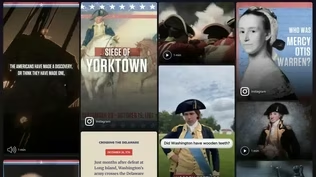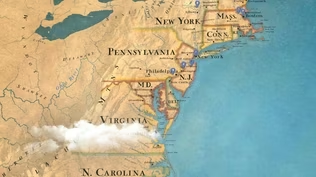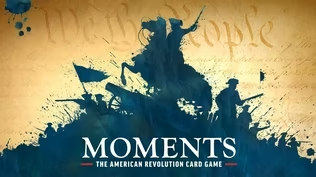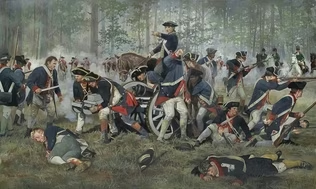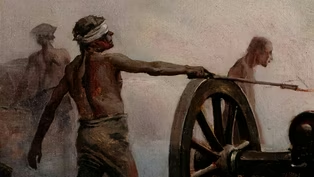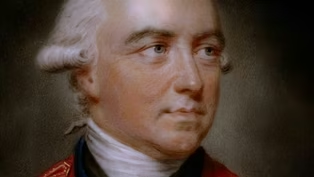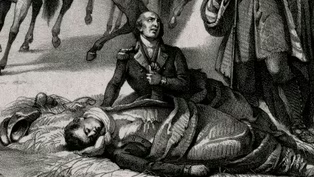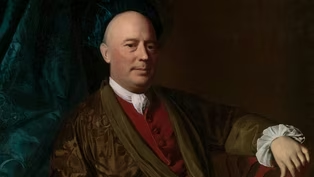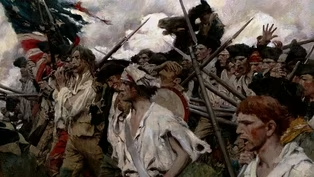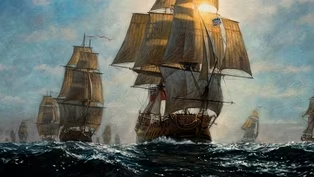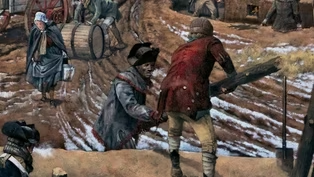
The British Siege of Charleston
Clip: Episode 5 | 4m 44sVideo has Closed Captions
The British surround and siege Charleston, South Carolina, one of the largest cities in America.
Looking towards the South, General Clinton aims to take the Carolinas. Charleston is one of the largest cities in the United States. The British surround and lay siege on the city as thousands of enslaved men, women and children flee to the British lines. After a month of constant bombardment, the city surrenders, which will become the biggest defeat of the Revolution.
Problems playing video? | Closed Captioning Feedback
Problems playing video? | Closed Captioning Feedback
Episodes presented in 4K UHD on supported devices. Corporate funding for THE AMERICAN REVOLUTION was provided by Bank of America. Major funding was provided by The Better Angels Society and...

The British Siege of Charleston
Clip: Episode 5 | 4m 44sVideo has Closed Captions
Looking towards the South, General Clinton aims to take the Carolinas. Charleston is one of the largest cities in the United States. The British surround and lay siege on the city as thousands of enslaved men, women and children flee to the British lines. After a month of constant bombardment, the city surrenders, which will become the biggest defeat of the Revolution.
Problems playing video? | Closed Captioning Feedback
How to Watch The American Revolution
The American Revolution is available to stream on pbs.org and the free PBS App, available on iPhone, Apple TV, Android TV, Android smartphones, Amazon Fire TV, Amazon Fire Tablet, Roku, Samsung Smart TV, and Vizio.
Buy Now
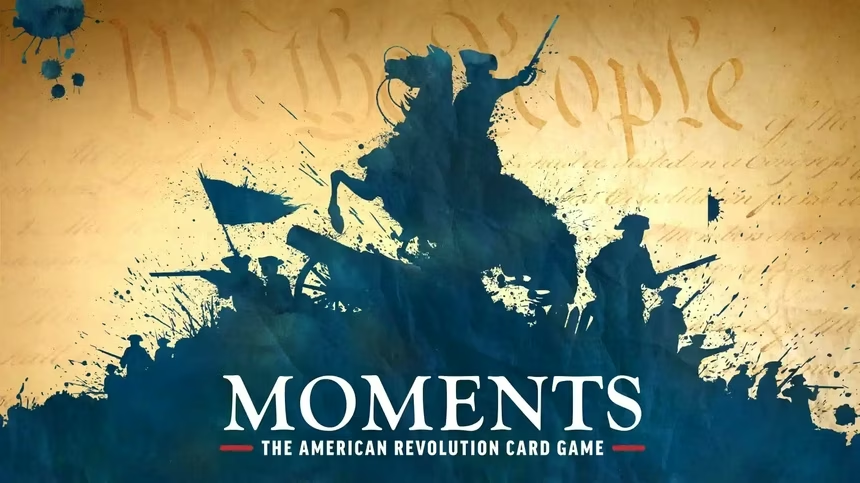
MOMENTS: The Revolutionary War Card Game
Use your knowledge of Revolutionary-era moments to build a timeline of real historical events.Providing Support for PBS.org
Learn Moreabout PBS online sponsorshipLengel: Charleston has resisted British attacks before.
There's a sense of confidence that it'll be able to resist British attacks again.
Americans are almost delusional about it.
They don't look the facts in the face of how vulnerable Charleston really is.
The geography is impossible.
Charleston is really out on a limb.
The British are gonna cut this place off, and they're gonna capture it.
Congress, instead of recognizing this fact, they keep sending more and more men to defend Charleston.
They send the best that the Continental Army has.
It's a mistake.
♪ Narrator: Some 30 miles southwest of the city on February 11, 1780, Clinton began landing his troops.
As the British army marched toward Charleston, first hundreds, then thousands of enslaved men, women, and children fled their plantations to join them.
♪ It would be more than a month before Clinton's forces could form a line a mile and a half north of the rebel fortifications and begin a European-style siege.
♪ More British troops from New York and Savannah would swell the British army to more than 10,000, roughly twice as large as the force with which Patriot General Benjamin Lincoln hoped somehow to defend the city.
Desperate for reinforcements, Lincoln suggested arming enslaved men and was told no.
Whites feared giving weapons to Black people, and, besides, slave owners did not want their property killed or maimed in battle.
Militia from the backcountry were also reluctant to come to the crowded city.
They feared smallpox and were unmoved by the plight of planters and merchants whose wealth and political power they had long resented.
♪ On April 1, 1780, the British began constructing the first of a series of parallels, sequential support trenches that would allow them to inch closer and closer to the city.
♪ A week later, British warships forced their way into Charleston Harbor and took command of it.
General Clinton called upon the rebels to surrender in order to save the town and its people from what he called "havock and desolation."
General Lincoln refused.
♪ Narrator: The British opened fire.
[Cannon fire] The Americans fired back.
Narrator: The guns would continue day and night for a month.
♪ [Men shouting] As each blasted at the other, the British parallels moved closer to the American lines-- 800 yards... 450 yards... 250.
♪ There was no escape.
General Lincoln asked that his surrendering men be granted the usual honors of war, but General Clinton refused: Rebels deserved no such honors.
♪ Lengel: When Charleston falls, it's a body blow to the Revolution and to the American cause.
It's a humiliation because we've lost not only Charleston, but we've lost some of the best troops that we have, and the British in their surrender terms really drive home that humiliation.
♪ Narrator: It was the worst defeat suffered by the Patriots during the Revolution.
An entire army was captured, 5,618 men by Clinton's count, including Benjamin Lincoln and 6 other generals, along with more than 300 cannon, 376 barrels of gunpowder, and 5,916 muskets.
♪
Video has Closed Captions
Clip: Ep5 | 8m 56s | The Continental Army engages the British in the last major battle in the North of the Revolution. (8m 56s)
Britain and the Southern Strategy
Video has Closed Captions
Clip: Ep5 | 4m | When it becomes clear that the British won’t win in New England, they set their sights on the South. (4m)
Video has Closed Captions
Clip: Ep5 | 5m 56s | The American Revolution has spilled into a global war, but the United States hangs on by a thread. (5m 56s)
Financing the American Revolution
Video has Closed Captions
Clip: Ep5 | 2m 59s | The economic realities of the war start to settle in for both the Americans and the British. (2m 59s)
Preview: The Soul of All America
Video has Closed Captions
Preview: Ep5 | 30s | The war drags on and moves to new theaters: at sea, in Indian Country, and in the South. (30s)
Spain Joins the American Revolution Against the British
Video has Closed Captions
Clip: Ep5 | 5m 43s | Spain joins the war, but not as an ally of American independence – as an enemy of Britain. (5m 43s)
Winter at Valley Forge: Hardship & Desperation
Video has Closed Captions
Clip: Ep5 | 4m 26s | The Continental Army threatens to unravel while suffering harsh winter conditions at Valley Forge. (4m 26s)
Providing Support for PBS.org
Learn Moreabout PBS online sponsorshipSupport for PBS provided by:
Episodes presented in 4K UHD on supported devices. Corporate funding for THE AMERICAN REVOLUTION was provided by Bank of America. Major funding was provided by The Better Angels Society and...

